Analyzing Leadership Styles and Management Practices in Business
VerifiedAdded on 2023/04/22
|6
|470
|204
Presentation
AI Summary
This presentation elucidates the impact of different leadership styles on organizations and the impact of different management practices. It discusses the effectiveness of dominant, transformational, and situational leadership styles in various organizational contexts. Organizational theories, including scientific management and human relations, are explored, highlighting how interpersonal skills and effective utilization of power influence management practices. Different management approaches, such as cultivation (Apple Inc) and steering (Innov8), are compared, noting their reliance on existing abilities and short-term outcomes, respectively. The study concludes that leadership style has a significant impact on organizational performance and that management practices like scientific management benefit organizations.
1 out of 6
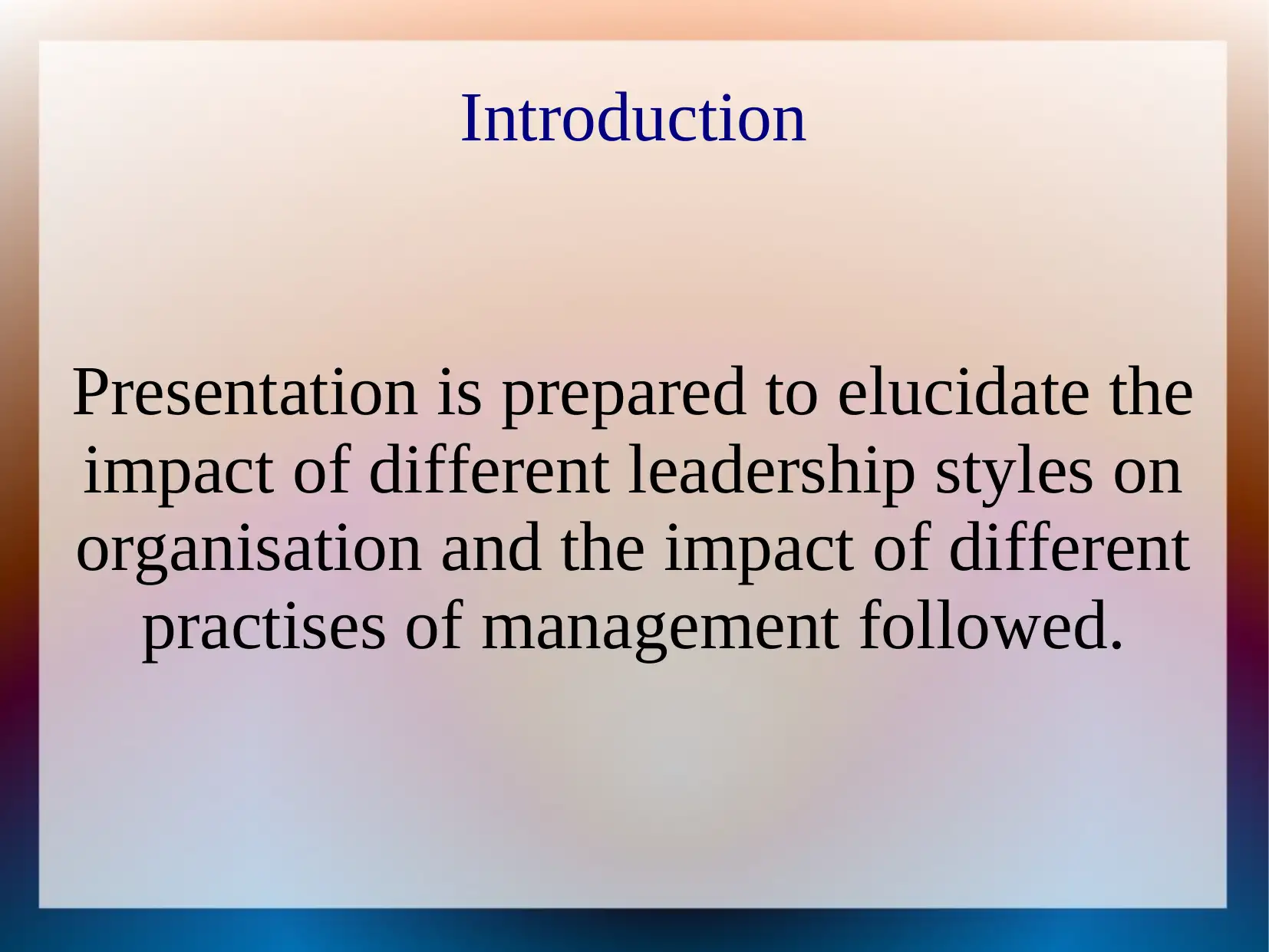
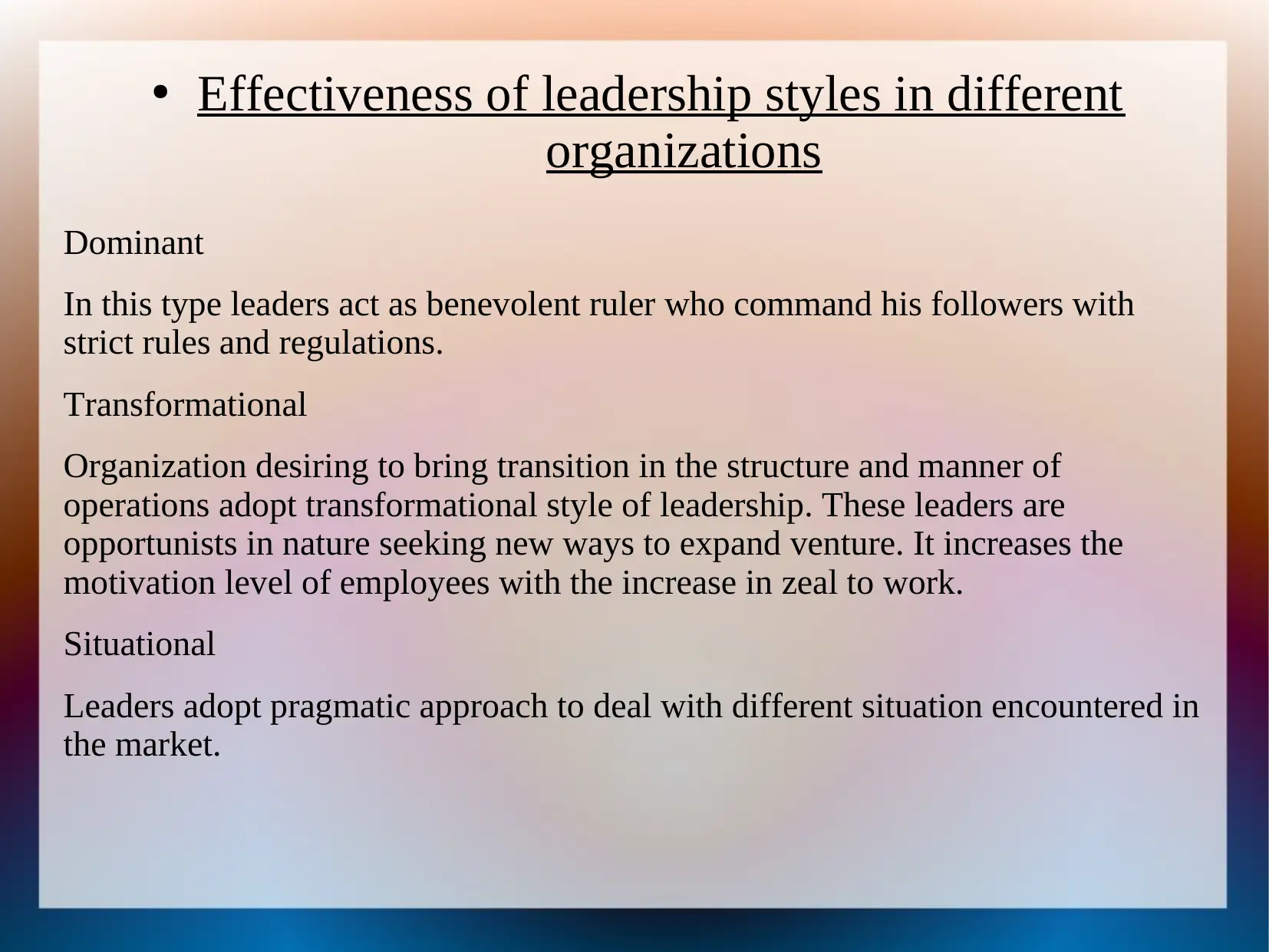
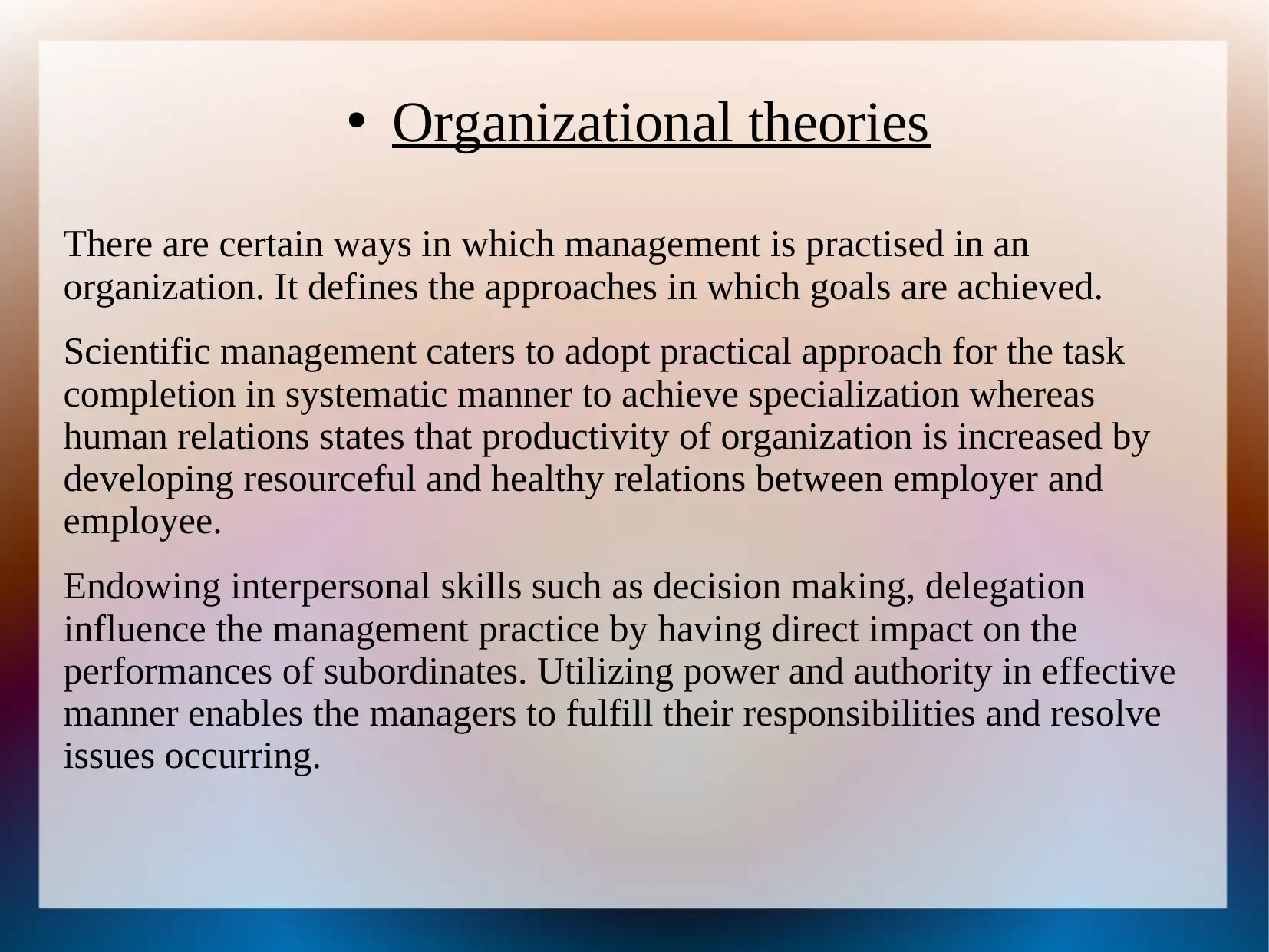

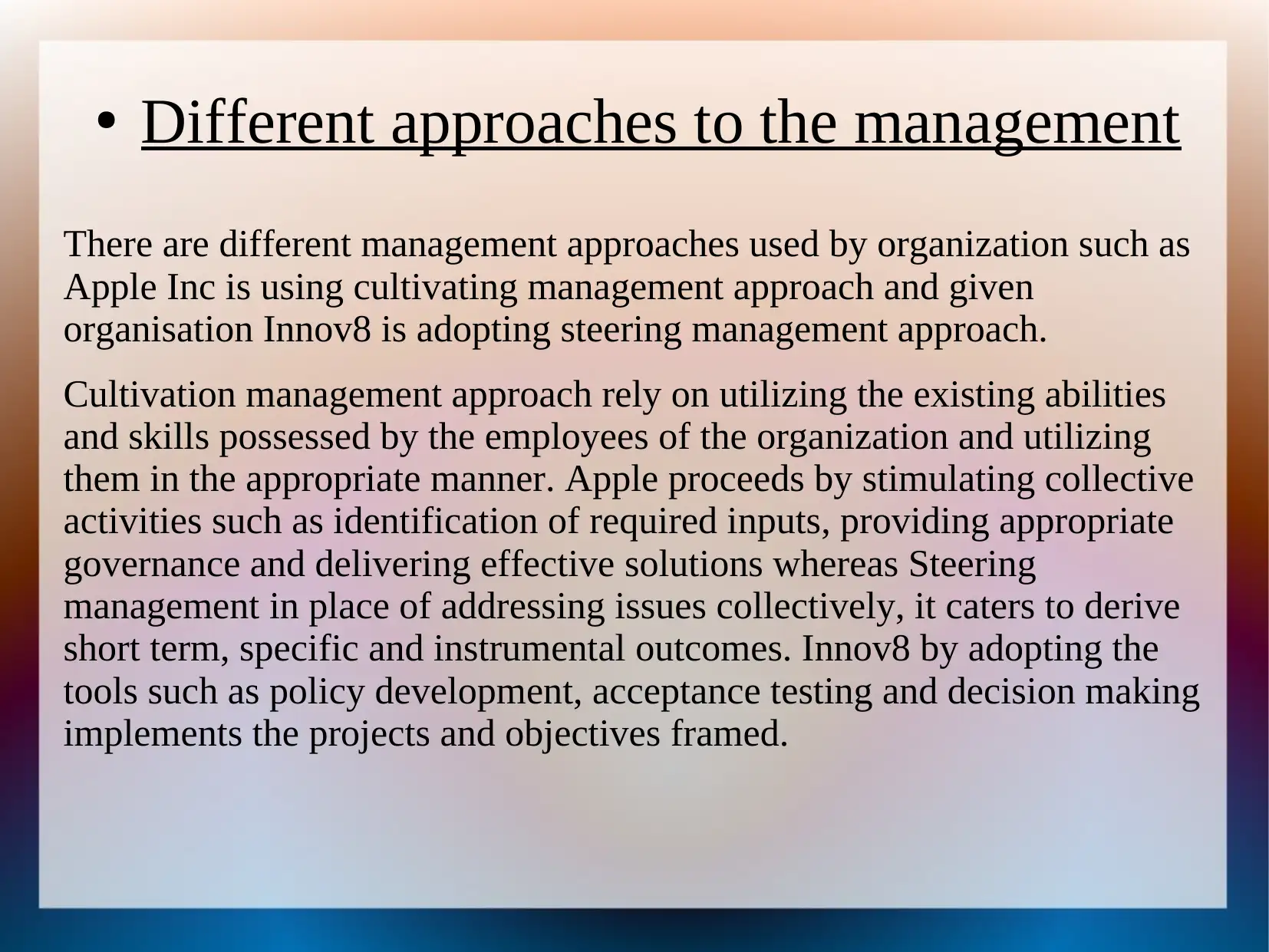
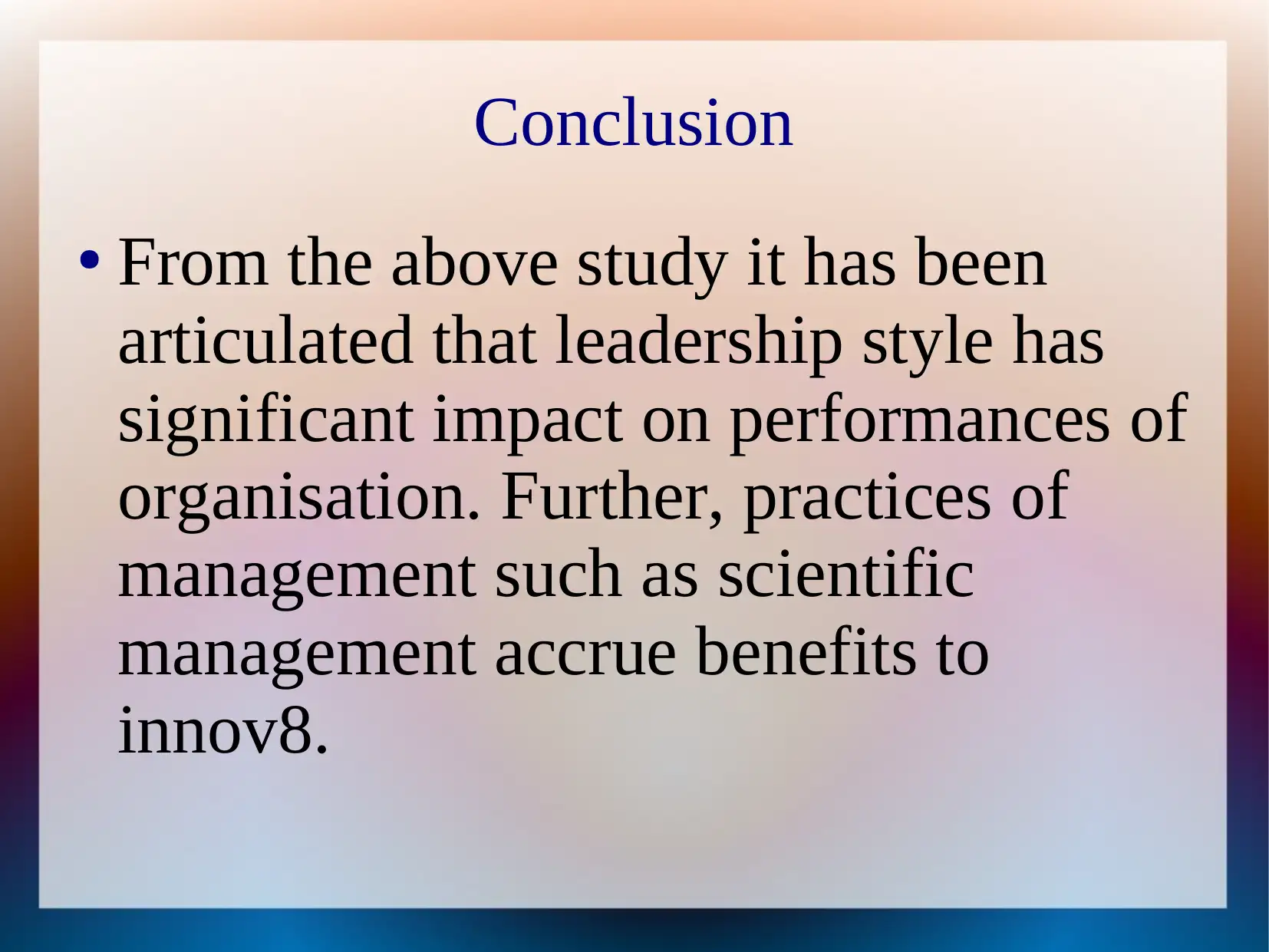
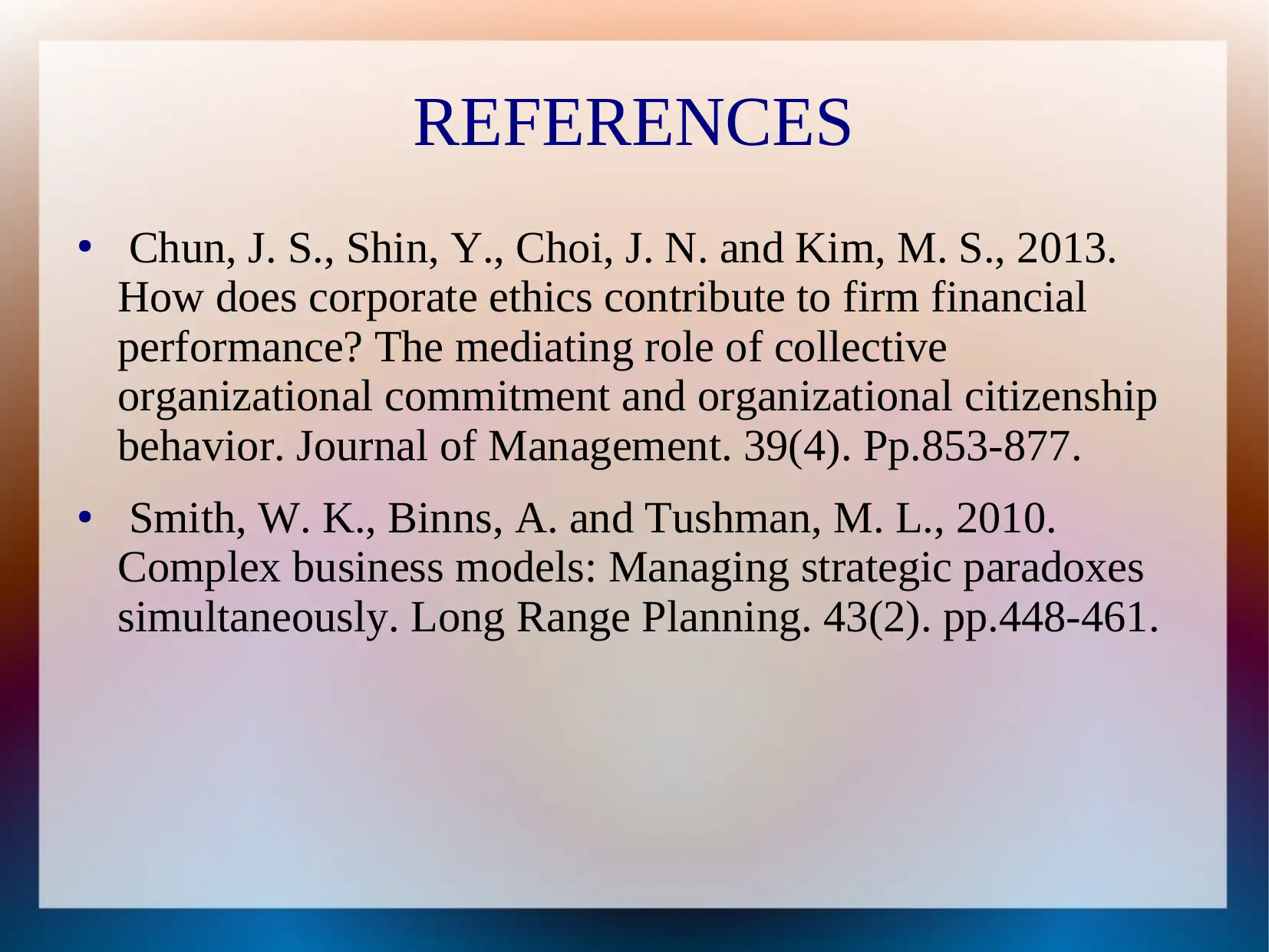






![[object Object]](/_next/static/media/star-bottom.7253800d.svg)